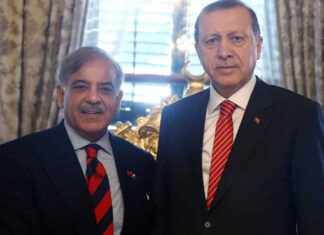ISLAMABAD: The Federal Government has finally appointed Justice (Retd) Mazhar Alam Miankhel as the Chairman of the Competition Appellate Tribunal, marking the tribunal’s full functionality after a hiatus of 7.5 years in the last decade. Justice Miankhel, a former Chief Justice of the Peshawar High Court and a retired judge of the Supreme Court, will serve a three-year term following approval by the federal cabinet during its Wednesday meeting.
With 212 pending cases, the Competition Appellate Tribunal’s revival is a crucial step towards addressing legal bottlenecks that have plagued the competition landscape. Over the past decade, due to its non-functionality, concerned entities resorted to High Courts, resulting in 140 petitions seeking alternate remedies.
What purpose does the tribunal serve?
The Competition Appellate Tribunal (CAT) in Pakistan is a specialized forum that handles appeals against decisions of the Competition Commission of Pakistan (CCP). The Competition Commission of Pakistan is the country’s competition regulatory authority responsible for ensuring fair competition and preventing anti-competitive practices in the market.
The Competition Appellate Tribunal was established under the Competition Ordinance, 2007, to provide an avenue for parties to appeal decisions made by the Competition Commission. Its role includes hearing and deciding appeals against orders, decisions, or determinations of the Competition Commission. The tribunal operates independently to ensure a fair and impartial review of competition-related cases.
The cost of inaction:
Over the last 7 years, the competition commission of Pakistan has faced extreme challenges in doing its job. With over 550 cases and inquiries unresolved, and over 68 billion in fines stuck in a legal limbo, the commission has had its role undermined by players from all the sectors of business.
One big reason for this prevailing legal stalemate, has been the absence of a chairman in the Competition Appellate Tribunal. With an active tribunal not able to listen to complaints, companies have found themselves at the doorstep of the Competition Appellate Tribunal, as a mere delaying tactic to avoid legal action against them.
Profit has previously reported on the cases of Mezan Beverages and Atlas Honda Cars, just to name a few who have been able to diverge from legal action because of the tribunal.
Another high-profile case awaiting the Tribunal’s attention is the sugar cartel case, involving a substantial Rs. 44 billion penalty imposed by the CCP on the Pakistan Sugar Mills Association and its member sugar mills. The resolution of such cases is anticipated to bring clarity and efficiency to the affected industries at large.
What is expected to change?
The Competition Commission of Pakistan (CCP) expressed satisfaction with this new development, emphasizing that a functional Tribunal would expedite decisions in pending cases. Delays in resolving appeals had previously hindered the implementation of vital CCP orders across diverse sectors such as sugar, cement, fertilizer, telecom, banks, and consumer goods.
Justice (Retd) Miankhel’s reputation for judicial integrity and standing aligns with the legal requirements for the Tribunal’s Chairman. According to the law, the Chairman must be a former Chief Justice of a High Court or a retired judge of the Supreme Court. Additionally, the Tribunal comprises two technical members with expertise in international trade, law, economics, finance, and accountancy, ensuring a comprehensive and knowledgeable approach to competition-related matters.
As the Competition Appellate Tribunal resumes its operations under the leadership of Justice (Retd) Miankhel, stakeholders are optimistic about the expeditious resolution of pending cases and the Tribunal’s vital role in fostering fair competition within the Pakistani business landscape.























